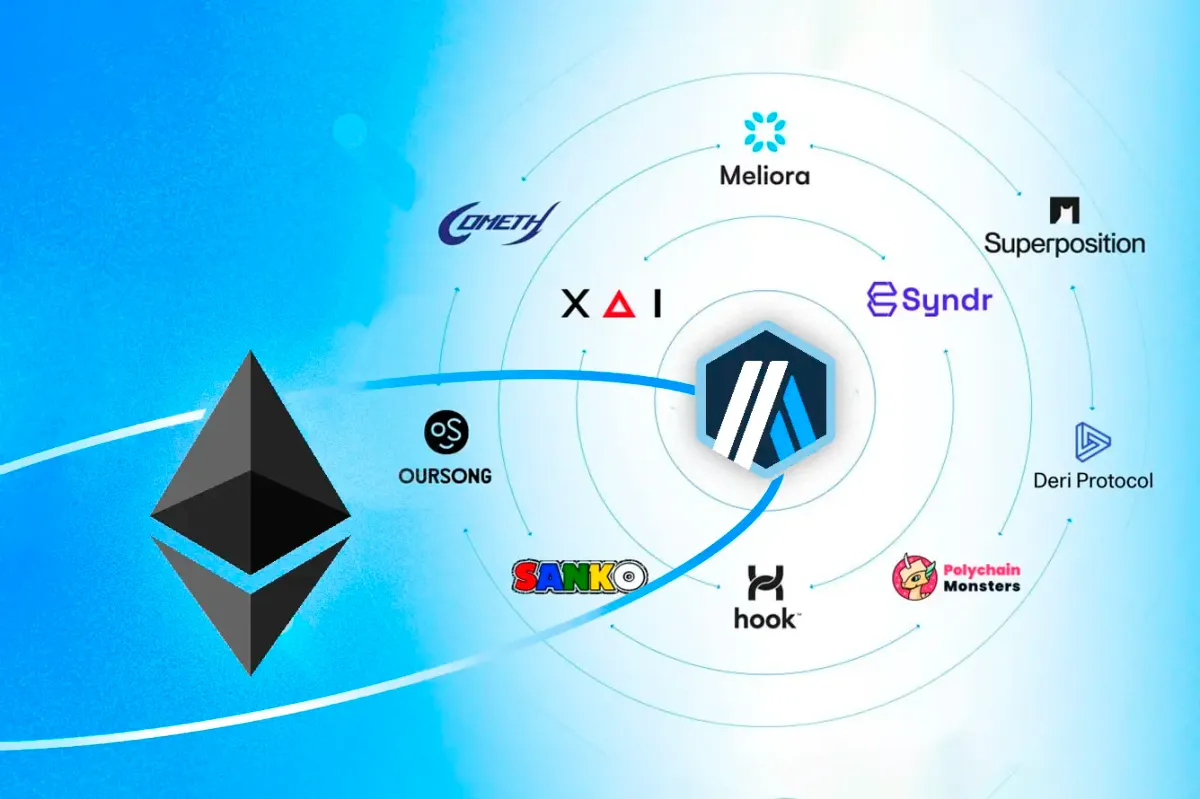
Arbitrum, an Ethereum Layer 2 network, has announced that its Orbit solution is now ready for the mainnet. Orbit allows anyone to create their own chain that settles directly to one of Arbitrum’s L2 chains: Arbitrum One, Arbitrum Nova, Arbitrum Goerli, or Arbitrum Sepolia. The new solution provides enhanced flexibility for developers, which could potentially boost Arbitrum's adoption.
L2 networks operate on top of Ethereum, offering users quicker transaction speeds, lower costs, and the same security Ethereum delivers. Currently, among the many L2 networks, Arbitrum stands out as the largest, boasting a TVL of around $6.5 billion.
While transactions on the Arbitrum chain settle on Ethereum, Orbit introduces a third layer to this infrastructure. Transactions from Orbit chains will first settle on Arbitrum, with everything ultimately settling on the Ethereum blockchain.
Orbit chains offer significant flexibility, allowing developers to tailor them to their specific needs. For example, the chains can be set up as either permissionless or permissioned, with developers having the ability to determine who can access a particular chain's data and who can deploy smart contracts on a particular chain. Furthermore, these chains can have their own token, enabling developers to collect transaction fees.
One major advantage of Orbit is its support for several popular programming languages. This means developers can deploy EVM-compatible smart contracts in Solidity, C, C++, and Rust without switching from the tools and language they are familiar with.
Such out-of-the-box blockchain solutions are especially great for developers who want to integrate blockchain into their products but don't have the resources and expertise to deal with the hurdles of running their own blockchain. Building and maintaining a blockchain network is costly and difficult, and may not align with the core objectives of the project.
Arbitrum reports that it has at least 10 projects already lined up wishing to launch their own Orbit chains. Notably, many of these are gaming projects, highlighting the strong demand for such solutions in the blockchain gaming space. As blockchain gaming emerges as the next big trend in crypto, and game developers show reluctance to invest heavily in blockchain development, out-of-the-box solutions like Orbit are likely to see increased demand and traction.
Interestingly, Arbitrum is not the only L2 solution offering this functionality. Other L2 networks, particularly Polygon, Optimism, and zkSync, are working on similar solutions for developers.
Overall, the launch of Orbit should help Arbitrum further strengthen its presence in the L2 space and boost its user metrics.

